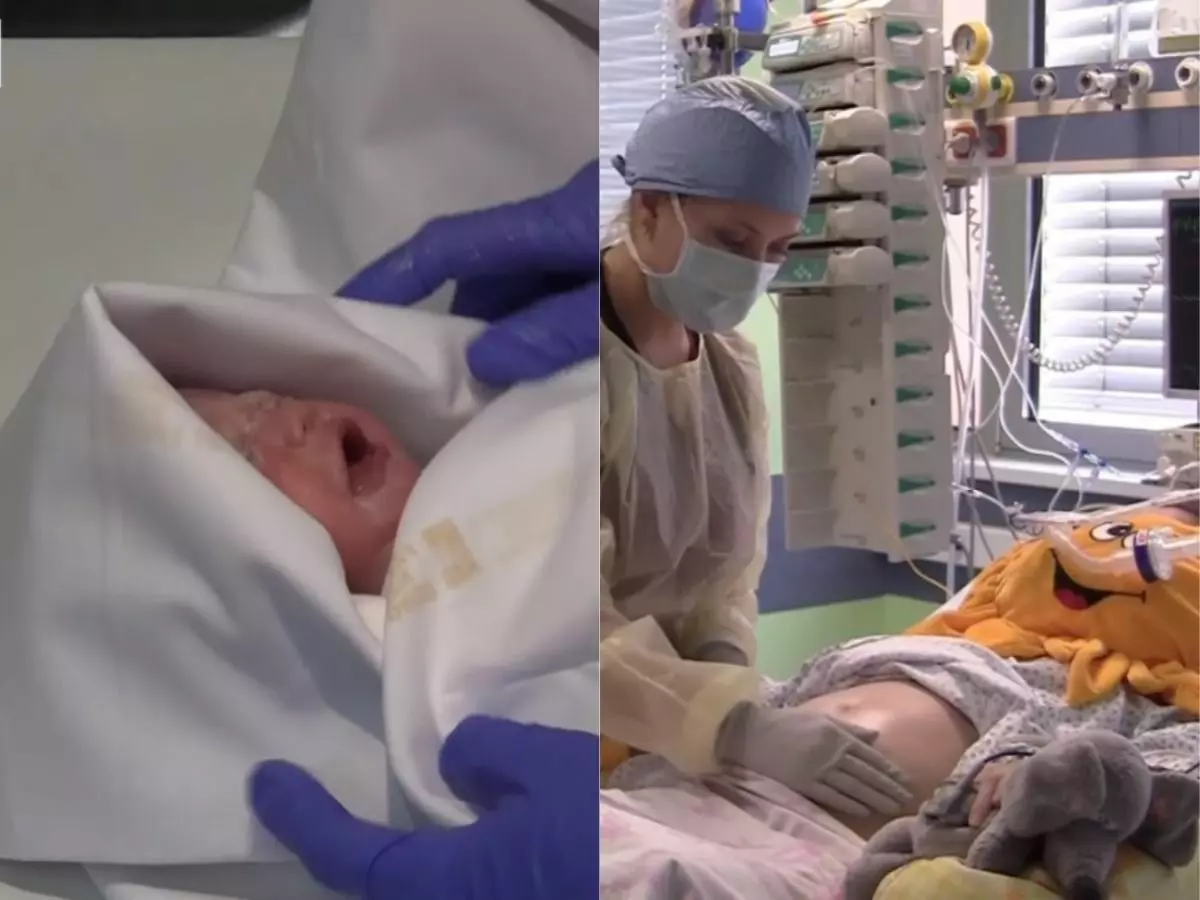Doctors In The Czech Republic Delivered A Baby 117 Days After The Mother Suffered Brain Death
Earlier in April, a Czech woman was rushed to the hospital after a stroke. The chances of the unconscious woman surviving were slim, as were those of the 15-week-old fetus still in her womb. And yet, it seems miracles can happen.

Earlier in April, a Czech woman was rushed to the hospital after a stroke. The chances of the unconscious woman surviving were slim, as were those of the 15-week-old fetus still in her womb. And yet, it seems miracles can happen even in the most dire circumstances.

Images courtesy: Brno University Hospital
That's because on August 15, the fetus was born a healthy baby girl, weighing 2.13 kg and measuring 42 cm. It's not that the mother recovered enough to deliver the baby either. Rather, the child was born via cesarean section because her mother was still brain-dead in the hospital, setting a new record in the process.
According to a statement this week from Brno's University Hospital the mother was declared brain-dead shortly after reaching the hospital. Her baby was after that kept alive in the mother's womb for 117 days, a new record for the longest artificially sustained pregnancy in a brain-dead mother.
It wasn't easy either. Since doctors couldn't do much for the mother beyond stabilising her, they got to work trying to save the baby. They put the 27-year-old woman on artificial life support to keep the pregnancy moving along, and even had nurses regularly move her legs, in order to simulate walking for the child's growth. They also had to ensure she washed and cleaned regularly to avoid infections, keep her heart and lungs working in tiptop shape, and take feed her as much nutritious stuff they could intravenously.
The baby was eventually delivered in the 34th week of pregnancy, with the woman's husband and family members present. After that, as per the family's wishes, doctors disconnected the life support systems and allowed the mother to die.

"This has really been an extraordinary case when the whole family stood together ... without their support and their interest it would never have finished this way," Pavel Ventruba, head of gynaecology and obstetrics at the hospital, told Reuters.
